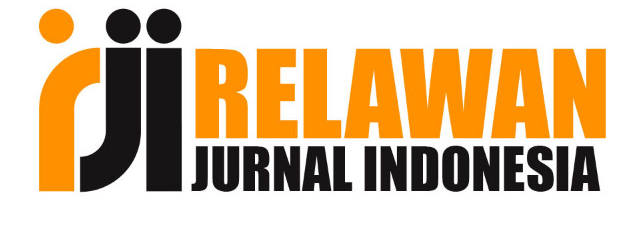PENGARUH LOVE OF MONEY, PERILAKU ETIS MAHASISWA DAN KOMITMEN ORGANISASI TERHADAP KECENDERUNGAN KECURANGAN AKUNTANSIDENGAN GENDER SEBAGAI VARIABEL PEMODERASI
DOI:
https://doi.org/10.36982/jiegmk.v7i1.169Abstract
This study aimed to analyze whether there is influence between the love of money, ethical behavior, and organizational commitment to the tendency of accounting fraud by gender moderation. This research basically developed with quantitative approach. The study population includes all students Tier 1 Department of Accounting and Management Faculty of Economics at the University of Indo Global Mandiri Palembang. Samples were taken using the method of data collection is called purposive sampling. The samples used were 81 participants from 86 participants overall. Data collection techniques used is through questionnaires. Data analysis techniques were analyzed with descriptive statistics, classical assumption (normality test, multicollinearity, heteroskedasitisitas), t-test and ANOVA.Results showed hypothesis 1 is accepted because there is a positive and significant relationship, then there is an interaction Love of Money (LOM) against the tendency of Cheating Accounting (KKA). Testing the hypothesis is accepted because there are two positive and significant relationship between the perception of ethical (PE) by gender on Accounting Fraud Trends (KKA). While the hypothesis 3 are positive and significant relationship Organizational Commitment (KO) against the tendency of Cheating Accounting (KKA). Thus, the third hypothesis is accepted. Keywords: Love of Money, ethical behavior, organizational commitment, genderReferences
Elias, R.Z., 2006, “The impact of Professional Commitment and Anticipatory Socialization on Accounting Students’ Ethical Orientationâ€, Journal of Business Ethics
_________, 2007, “The Relationship Between Auditing Students’ Anticipatory Socialization and Their Professional Commitmentâ€, Academy of Educational Leadership Journal
_________, 2008, “Auditing Students’ Professinal Commitment and Anticipatory Socialization and Their Relationship to Whistleblowingâ€. Managerial Auditing Journal, Vol. 23 No. 3 Husaini, Usman, dkk., 2003, â€Pengantar Statistikaâ€, Bumi Aksara, Jakarta.
_________, 2009, “The Relationship Between Accounting Students’Love of Money and Their Ethical Perceptionâ€, managerial Auditing Journal, Vol. 25 No. 3
Gibbins, M. and Mason, B. (1988), Professional Judgment in Financial Reporting, Canadian Institute of Chartered Accountants, Toronto
Ghozali, Imam. 2005. “Aplikasi Analisis Multivariate dan Program SPSSâ€. Semarang : Badan Penerbit Universutas Diponegoro.
Herzberg, F. (1987), “One more time: how do you motivate employees?â€, Harvard Business Review, September-October, pp. 109-20, (originally published January-February 1968).
Luna-Arocas, R. and Tang, T.L.P. (2004), “The love of money, satisfaction, and the protestant work ethic: money profiles among university professors in the USA and Spainâ€, Journal of Business Ethics, Vol. 50, pp. 329-54.
O’leary, C dan , D Cotter., 2000, “The Ethics of Final Year Accountancy Students: an International Comparisonâ€, Managerial Auditing Journal.
Rubenstein, C. (1981), “Money and self-esteem, relationships, secrecy, envy, satisfactionâ€, Psychology Today, Vol. 15 No. 5, pp. 94-118.
Sugiyono, 2006, “Metode Penelitian Pendidikan, Pendekatan Kuantitatif, Kualitatif dan R&Dâ€, Bandung : Penerbit Alfabeta
Tang, T.L.P. (1988), “The Meaning of Money Revisited: The Development of the Money Ethic Scaleâ€, 34th Annual Meeting of the Southwestern Psychological Association.
Tang, T.L.P., Kim, J.K. and Tang, D.S.H. (2000), “Does attitude towards money moderate the relationship between intrinsic job satisfaction and voluntary turnover?â€, Human Relations, Vol. 53 No. 2, pp. 213-45.
Tang, T.L.P. and Chiu, R.K. (2003), “Income, money ethics, pay satisfaction, commitment, and unethical behavior: is the love of money the root of evil for Hong Kong employees?â€, Journal of Business Ethics, Vol. 46, pp. 13-30.
Tang, T.L.P., Tillery, K.R., Lazarevski, B. and Luna-Arocas, R. (2004), “The love of money and work related attitudes: money profiles in Macedoniaâ€, Journal of Managerial Psychology, Vol. 19 No. 5, pp. 542-8.
Tang, T.L.P., Tang, D.S.H. and Luna-Arocas, R. (2005), “Money profiles: the love of money, attitudes, and needsâ€, Personnel Review, Vol. 34 No. 5, pp. 603-24.
Tang, T.L.P., Tang T.L.N., and Homaifar, B.Y. (2006), “Income, the love of money, pay comparison, and pay satisfaction, Race and gender as moderatorsâ€, Journal of Managerial Psychology Vol. 21 No. 5, pp. 476-491.
Downloads
Published
How to Cite
Issue
Section
License
Authors retain copyright and grant the journal right of first publication with the work simultaneously licensed under a Creative Commons Attribution License that allows others to share the work with an acknowledgement of the work's authorship and initial publication in this journal.
Â
Authors are permitted and encouraged to post their work online (e.g., in institutional repositories or on their website) prior to and during the submission process, as it can lead to productive exchanges, as well as earlier and greater citation of published work.
Â
LP2M Indo Global Mandiri University has the right to multiply and distribute the article and every author is not allowed to publish the same article that has been published in this journal.










